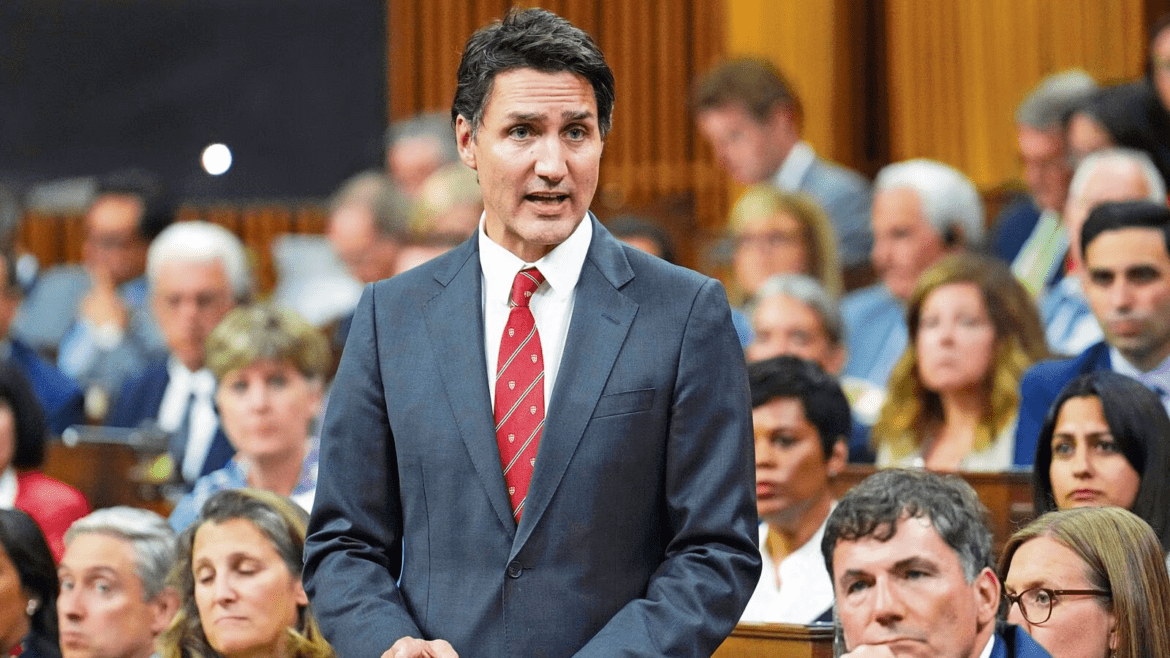AI Generated Summary
- The tenuous bridge of diplomacy between India and Canada wobbled when Canadian Prime Minister Justin Trudeau, in a sweeping statement, publicly accused India of complicity in the murder of Khalistani terrorist Hardeep Singh Nijjar.
- Despite the massive loss of lives, the snail-paced judicial process in Canada, and the release of a convicted terrorist, point to a lackadaisical attitude.
- Yet, Trudeau’s haste in making allegations before the completion of a thorough investigation, along with the expulsion of an Indian diplomat, reeks of impulsiveness and political maneuvering, rather than statesmanship.
The tenuous bridge of diplomacy between India and Canada wobbled when Canadian Prime Minister Justin Trudeau, in a sweeping statement, publicly accused India of complicity in the murder of Khalistani terrorist Hardeep Singh Nijjar. What’s perplexing is Trudeau’s claim in the House of Commons, furnished with words like ‘credible allegation’ and ‘potential link,’ yet void of concrete evidence.
The very essence of diplomacy is to tread lightly, speak softly, and carry the weight of evidence before casting aspersions. Yet, Trudeau’s haste in making allegations before the completion of a thorough investigation, along with the expulsion of an Indian diplomat, reeks of impulsiveness and political maneuvering, rather than statesmanship.
India’s strong refutation comes as no surprise. By suggesting that Trudeau’s statement is a diversionary tactic from Canada’s inability to curb Khalistani activism, India underlines the alleged duplicity of the West’s stance on terrorism and sovereignty.
The premier of British Colombia, David Eby, has said the information he got on terrorist Hardeep Singh Nijjar’s killing was available on the internet. “The only briefings that I’ve been able to receive were open source briefings, which is information that’s available to the public doing an internet search. Which I find frustrating,” Eby said. This, Eby said, came despite a briefing with the Canadian Security Intelligence Service (CSIS) director.
The historical backdrop of Western covert operations is pertinent here. The West has, on numerous occasions, prioritized its own interests over international norms, often violating the sovereignty of other nations under the garb of eliminating threats. From Mossad’s capture of Adolf Eichman to America’s hunt for Osama Bin Laden and the assassination of Qasem Soleimani, international borders have been repeatedly transgressed by Western powers. Yet, the question of violating another nation’s sovereignty hardly becomes an issue when the aggressor is a Western nation.
It’s ironic that Nijjar, accused of heinous acts in India and on India’s extradition list for years, found refuge in Canada. And now, his death is treated as a violation of Canada’s sovereignty. When the tables turn, does the West suddenly become more sensitive to the tenets of sovereignty and international law?
The tragedy of Air India Flight 182 stands as a glaring testament to Canada’s inconsistent approach to terrorism. Despite the massive loss of lives, the snail-paced judicial process in Canada, and the release of a convicted terrorist, point to a lackadaisical attitude.
Why is there an imbalanced requirement of “credible evidence” based on the origin of the victim or the alleged perpetrator? Why are Western allegations often taken at face value, while those from other parts of the world are subjected to rigorous scrutiny?
In the end, what the world needs is a consistent approach to justice, diplomacy, and international relations. The parameters of evidence, sovereignty, and terrorism should not shift based on geographical or political convenience. The India-Canada diplomatic row is not just a bilateral issue; it’s a reflection of deeper systemic inconsistencies that must be addressed for a fairer global order.
The opinions expressed in this article are those of the author. They do not purport to reflect the opinions or views of Khalsa Vox or its members.




